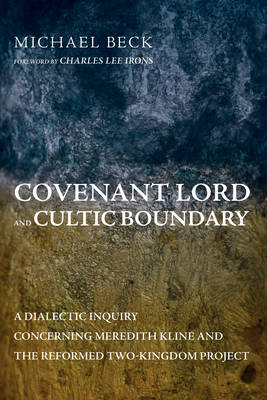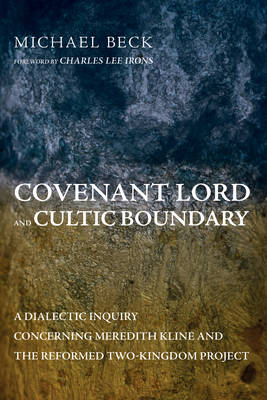
Door een staking bij bpost kan je online bestelling op dit moment iets langer onderweg zijn dan voorzien. Dringend iets nodig? Onze winkels ontvangen jou met open armen!
- Afhalen na 1 uur in een winkel met voorraad
- Gratis thuislevering in België vanaf € 30
- Ruim aanbod met 7 miljoen producten
Door een staking bij bpost kan je online bestelling op dit moment iets langer onderweg zijn dan voorzien. Dringend iets nodig? Onze winkels ontvangen jou met open armen!
- Afhalen na 1 uur in een winkel met voorraad
- Gratis thuislevering in België vanaf € 30
- Ruim aanbod met 7 miljoen producten
Zoeken
Covenant Lord and Cultic Boundary
A Dialectic Inquiry Concerning Meredith Kline and the Reformed Two-Kingdom Project
Michael Beck
Paperback | Engels
€ 56,95
+ 113 punten
Uitvoering
Omschrijving
The Reformed Two-Kingdom project has generated a great deal of literature. However, this literature is often characterized by inflamed rhetoric. Further, though it is standard fare to assume that Kline was the architect of the project, in reality, there has been very little scholarly examination of this point. In response, Kline's system is analyzed through the means of a dialectical discourse with three differing models within the Reformed tradition--the Theonomist, Perspectivalist, and Dooyeweerdian schools. Through this means, the study keeps away from surface-level polemics and instead directs readers to the critically important substructural level of current discussions. While clarifying some of the key differences between Kline and his interlocutors, often-overlooked points of nuance are also highlighted. These points are shown to be important in that they present the potential to lessen frustration and impasse in the ongoing dialogue.
Specificaties
Betrokkenen
- Auteur(s):
- Uitgeverij:
Inhoud
- Aantal bladzijden:
- 330
- Taal:
- Engels
Eigenschappen
- Productcode (EAN):
- 9781666737578
- Verschijningsdatum:
- 2/02/2023
- Uitvoering:
- Paperback
- Formaat:
- Trade paperback (VS)
- Afmetingen:
- 152 mm x 229 mm
- Gewicht:
- 439 g

Alleen bij Standaard Boekhandel
+ 113 punten op je klantenkaart van Standaard Boekhandel
Beoordelingen
We publiceren alleen reviews die voldoen aan de voorwaarden voor reviews. Bekijk onze voorwaarden voor reviews.











